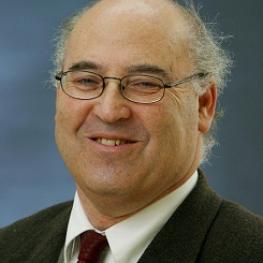Saint Stephen's Bones: A Chapter in the History of Jewish-Christian Relations in Late Antiquity
Eleventh Annual Joseph and Rebecca Meyerhoff Lecture
College Hall, Room 209
Philadelphia, PA 19104
The story of Saint Stephen’s bones begins with a vision near Jerusalem and ends with sea voyages throughout the late Roman world. The proto-martyr of the early church, Stephen, through his recovered relics, instigated bouts of internal brawling between local bishops and spasms of external political struggles between Jewish dignitaries and the ascendant church. Journeying further west, fragments of Stephen’s body set off waves of anti-Jewish hostility. This lecture will explore some of the consequences of this hostility, from the forced conversion of Minorca’s Jews to Augustine’s insistence on Jewish freedom of practice in City of God.
Featuring
Paula Fredriksen
Boston University
Paula Fredriksen is Aurelio professor of Scripture at Boston University. She studies the origins and history of ancient Christianity, from late Second Temple Judaism to the fall of the western Roman Empire. She is the author of Augustine and the Jews (2008); From Jesus to Christ: The Origins of the New Testament Images of Jesus (1988); and Jesus of Nazareth, King of the Jews, which won the National Jewish Book award in 1999. Her special interest in ancient Jewish-Gentile relations moved her into our own historical period with her critique of Mel Gibson’s controversial film on the death of Jesus. This spring she holds the Selma Ruben Fellowship at the Center for Advanced Judaic Studies
Oded Irshai
Hebrew University of Jerusalem
Oded Irshai is Senior Lecturer in the Department of Jewish History at the Hebrew University of Jerusalem. He is an expert in the areas of Jewish and Christian history during Late Antiquity. During his time at the Katz Center, Irshai will examine the two earliest Christian travelers’ and pilgrims’ reference books, the Onomasticon and the Martyrs of Caesarea, both written by the Christian historian, commentator, and polemicist Eusebius of Caesarea (ca. 263–339 c.e.).
Cosponsors
Kutchin Faculty Seminar Series of Jewish Studies, Department of History, Department of Religious Studies

